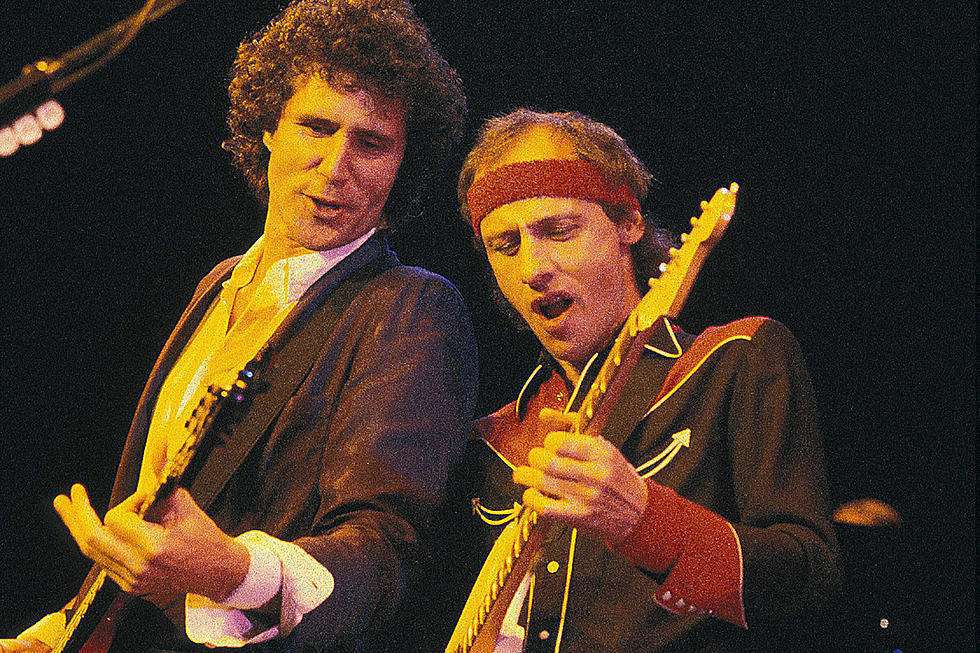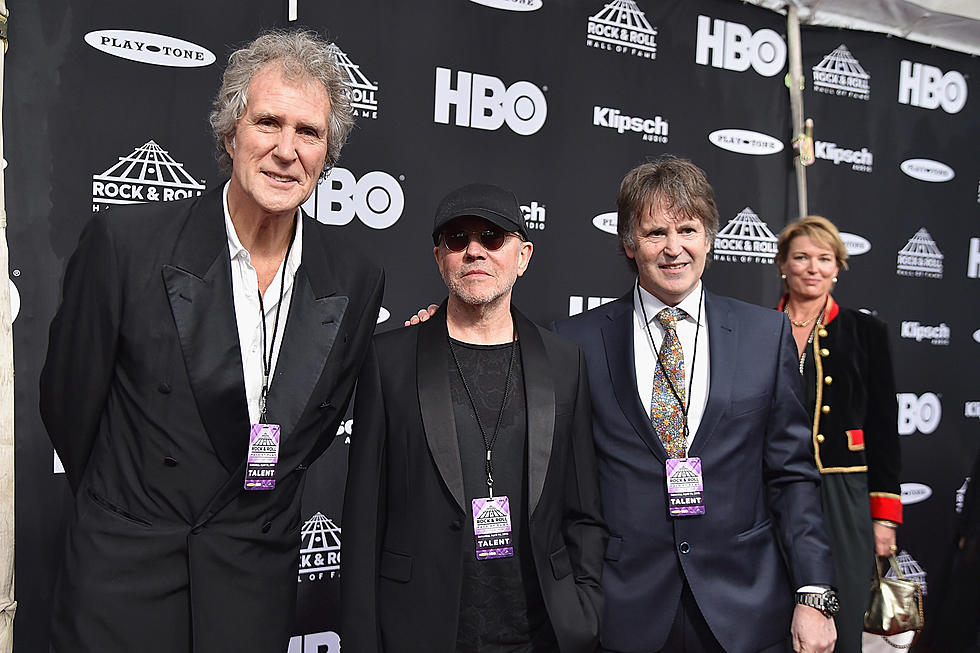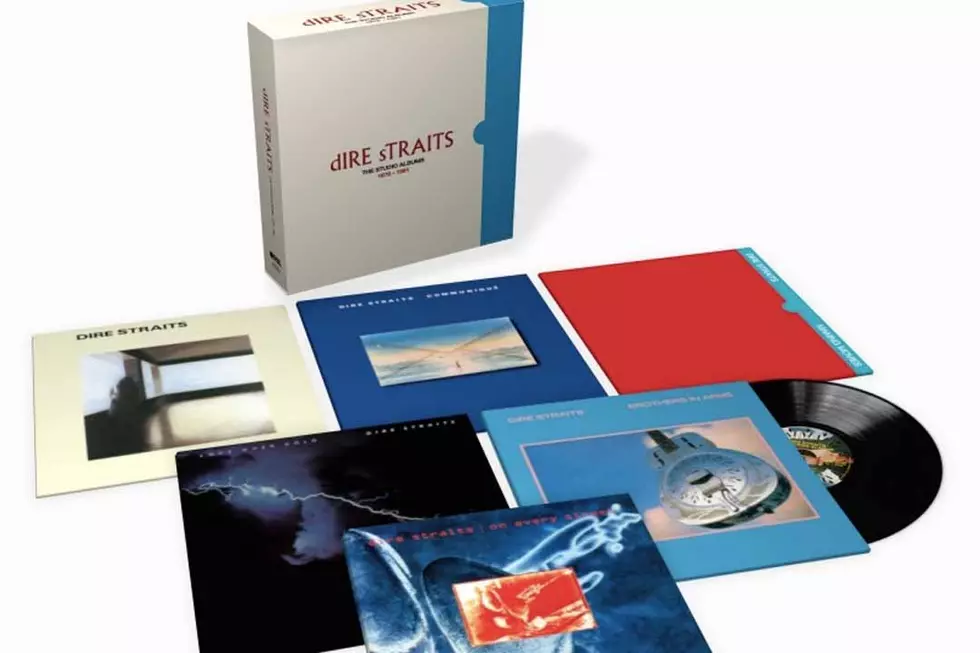
Why Dire Straits Broke Up for the First Time
Classic rock history is littered with unexpected tragedies and surprising reversals of fate, but other events can be seen coming from a mile away – case in point, the official breakup of Dire Straits, which was announced by band leader Mark Knopfler on Sept. 15, 1988.
For several years leading up to that fateful day, the band had struggled to come to grips with the wholly unforeseen benefits – and challenges – afforded by the global superstardom they’d achieved on the back of 1985’s, hit-filled, multi-platinum smash, Brothers in Arms.
Don’t forget, this was the same band (give or take a musician or two) that, just a decade earlier, had been competing with countless, now long-forgotten London pub rock bands just to catch a lucky break. And the fact that they finally did so with a song like eventual U.K. Top 10 hit, "Sultans of Swing," which provided a candid firsthand account of those working band experiences only bolsters the irony.
The ensuing four years saw Dire Straits’ career developing apace, while yielding a few lows (sophomore slump Communiqué for starters) amid the more frequent highs (a belated Grammy nomination for "Sultans," renewed studio success), culminating – or so it seemed – on 1984’s critically acclaimed double live album, Alchemy, which captured the group in optimal stage form.
If anything, odds-makers considering Dire Straits’ prospects for 1985 would have probably bet on an off-year, but instead, Brothers in Arms took the band stratospheric: topping charts worldwide, winning a pair of Grammys, selling more than 30 million copies and, against all odds, even conquering MTV as Knopfler and company toured the world for the next two years.
By the time they finally got off the roller coaster, band members were uniformly fried to a crisp and desperate for some much-deserved downtime. Still, demand for Mark Knopfler’s talents was so great that he soon found himself immersed in album production and soundtrack work (something he’d begun to explore as far back as 1983), barely pausing to take stock of his band’s recent achievements.
And when Dire Straits agreed to headline Nelson Mandela’s 70th birthday tribute concert at London’s Wembley Arena in June 1988, the renewed taste of universal adulation convinced Knopfler – not to resume band activities, as many fans no doubt hoped – but to stick a fork in the unwieldy monster he had created, in order to focus on more down-to-earth musical pursuits.
His announcement that September of Dire Straits’ open-ended dissolution would hold until 1991 and the album/tour cycle in support of comeback album, On Every Street, but even without that final taste of the big time, Knopfler and his band’s legend would have been assured by the wealth of great music and estimated astonishing 120 million albums sold along the way.
Top 100 Live Albums
More From Ultimate Classic Rock









